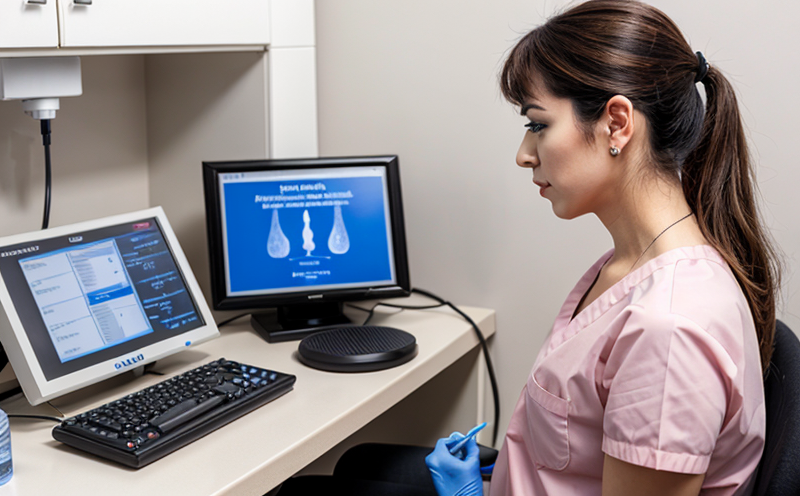Progesterone Testing in Dairy Cattle Fertility Monitoring
Progesterone testing is a critical tool in dairy cattle fertility monitoring, providing insights into the reproductive health and performance of the herd. Progesterone, a steroid hormone produced by the corpus luteum during the heat cycle, plays a pivotal role in regulating estrus cycles and pregnancy maintenance. Monitoring progesterone levels helps identify cows that are not cycling normally or those that have been bred unsuccessfully.
Proper fertility management is essential for optimizing milk production and overall herd health. By accurately tracking progesterone levels, farmers can make informed decisions about breeding schedules, culling strategies, and reproductive interventions. This service ensures that the dairy farm operates efficiently, reducing costs associated with suboptimal reproduction and improving profitability.
The process involves collecting a blood or serum sample from the cow, which is then analyzed for progesterone concentration using immunoassay techniques. The results are compared against established thresholds to determine if the cow is in heat or pregnant. This service supports various aspects of dairy farming:
- Identifying non-cycling cows
- Detecting early pregnancy failures
- Optimizing breeding schedules
- Predicting calving intervals
The accuracy and reliability of progesterone testing are paramount. This service adheres to international standards such as ISO 15189:2012 for quality management systems in medical laboratories, ensuring that the results meet stringent accuracy requirements.
In addition to technical precision, this service also considers the ethical implications of fertility monitoring, particularly in managing cattle reproduction without causing undue stress or harm. Farmers can use these insights to enhance their animal welfare practices and comply with regulatory standards.
Applied Standards
The progesterone testing service for dairy cattle follows internationally recognized standards that ensure the accuracy, precision, and reliability of the results. These include:
- ISO 15189:2012 – Laboratory accreditation requirements
- ASTM E694-17 – Standard test method for quantitation of progesterone in bovine serum using liquid chromatography-tandem mass spectrometry (LC-MS/MS)
- EN ISO 15189:2012 – European equivalent to the same standard
- IEC 62366 – Medical device regulatory requirements for in vitro diagnostic medical devices (IVDs)
The service provider adheres strictly to these standards, ensuring that all testing procedures and equipment meet the highest quality benchmarks.
The use of LC-MS/MS technology allows for high sensitivity and specificity in detecting progesterone levels. This advanced analytical method provides accurate quantification even at low concentrations, which is crucial for understanding subtle changes in reproductive health.
Quality and Reliability Assurance
The quality and reliability of the progesterone testing service are paramount to ensuring that dairy farmers receive accurate and actionable insights into their herd's reproductive status. Our commitment to excellence is reflected in our robust quality assurance processes:
- Daily Calibration Checks – We perform routine checks on all analytical instruments to ensure they remain within specified tolerances.
- Internal Controls – Each batch of tests includes internal controls that validate the consistency and accuracy of results.
- Proficiency Testing – Participating in external proficiency testing programs ensures continuous improvement and adherence to industry best practices.
- Data Validation – All test data undergo rigorous validation processes to confirm their reliability before reporting.
- Continuous Training – Our staff regularly attend training sessions on the latest techniques and technologies, ensuring they are up-to-date with the most advanced methods.
These measures contribute to our reputation for delivering consistent, accurate results that can be trusted by farmers and veterinarians alike. By adhering to these stringent quality assurance protocols, we help dairy operations achieve optimal reproductive outcomes and improve overall herd health.
Use Cases and Application Examples
The progesterone testing service has a wide range of applications in dairy cattle management. Here are some practical examples:
- Identifying Anestrus Cows – Progesterone levels can indicate whether a cow is experiencing anestrus, which may be due to ovarian dysfunction or other health issues.
- Evaluating Pregnancy Status – Monitoring progesterone during pregnancy helps detect early signs of embryonic death or fetal loss.
- Breeding Synchronization Programs – By tracking progesterone levels, farmers can synchronize estrus cycles to improve the success rate of artificial insemination programs.
- Prediction of Calving Dates – Elevated progesterone levels in early pregnancy indicate impending calving, allowing for better preparation and management.
- Assessing Reproductive Health – Consistent monitoring over time can help identify trends that may indicate underlying health issues requiring veterinary intervention.
- Evaluation of Estrus Detection Systems – Progesterone testing provides a reliable reference for evaluating the effectiveness of estrus detection systems in dairy herds.
These applications demonstrate how progesterone testing is integral to modern dairy management, providing valuable data that can be used to optimize reproductive health and improve herd productivity.





